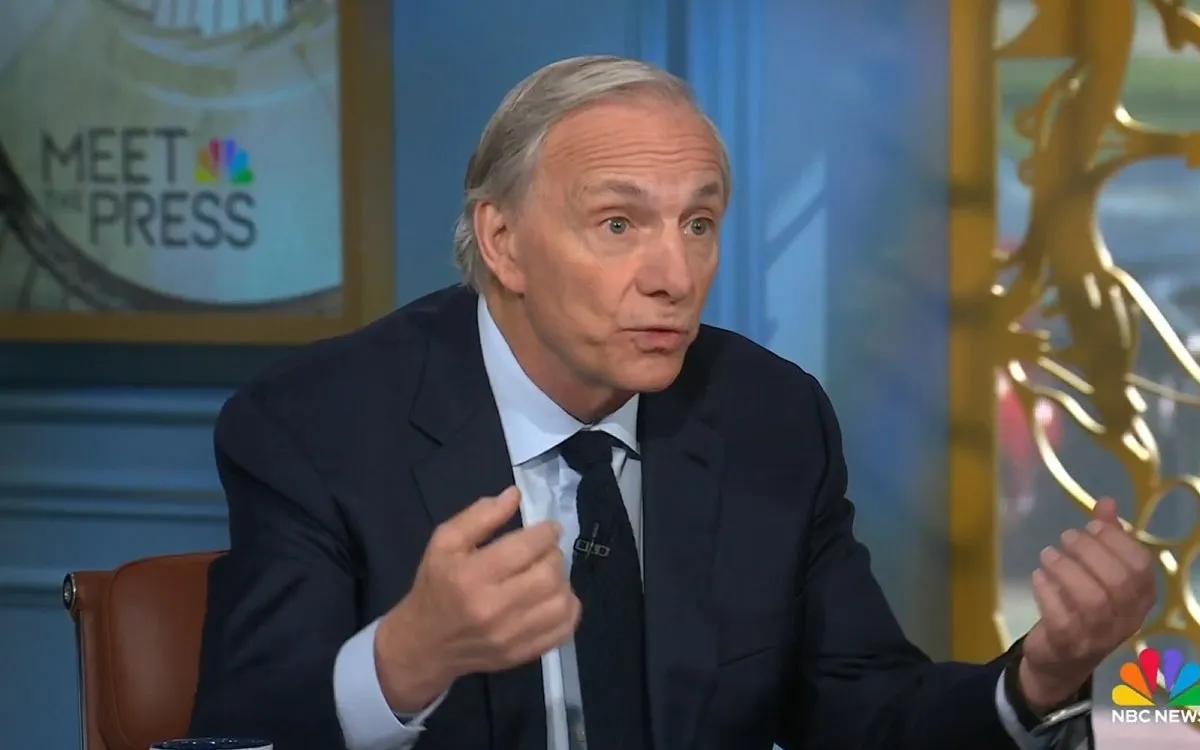
The U.S. economy is currently teetering on the edge of a formal economic recession, with warnings from experts suggesting that the situation could deteriorate even further. Ray Dalio, a billionaire investing expert and founder of Bridgewater Associates, made these assertions during his appearance on NBC’s Meet the Press. He highlighted the market instability caused by the “disruptive” nature of former President Donald Trump’s tariff announcements, which have left both U.S. businesses and global trading partners uncertain about America's economic direction.
Dalio, a seasoned Wall Street veteran known for predicting the 2008 housing market collapse, conveyed to NBC’s Kristen Welker that the possibility of averting “something much worse than a recession” hinges on how effectively the White House manages these economic challenges. Trump’s administration aims for a comprehensive reorganization of global trade, which Dalio warns could lead to significant disruptions if not handled with care.
“We are witnessing profound changes in our domestic order and the global order,” Dalio stated. He compared the current climate to the tumultuous 1930s, emphasizing how factors such as tariffs, rising national debt, and shifting power dynamics contribute to a precarious economic landscape. “These changes in the orders and systems are very disruptive,” he noted, reinforcing the idea that the economic fallout could be severe if not navigated properly.
Dalio, whose impressive net worth is estimated at $14 billion, reiterated his long-standing concern about the escalating U.S. federal debt, which has surpassed $36 trillion. He described this situation as a ticking time bomb that threatens the nation’s future ability to spend and borrow effectively. “We are experiencing a breakdown of the monetary order,” Dalio warned, suggesting that fundamental changes to the monetary system may be necessary due to the unsustainable spending patterns.
He proposed that members of Congress should adopt what he calls the “3 percent pledge,” committing to reduce the budget deficit to that level. According to Dalio, failing to address the deficit could create a severe supply and demand imbalance for debt, resulting in consequences that would be more severe than a typical recession.
Dalio's warnings come amidst a backdrop of recent instability in the stock market, largely driven by falling tech stocks and other sectors affected by the administration's new tariffs. Just last Friday, Trump’s Customs and Border Protection agency announced exemptions for certain imports crucial to the tech industry, such as smartphones and solar cells, from the high reciprocal tariffs on China. This decision initially seemed positive for companies like Apple but was tempered by comments from Commerce Secretary Howard Lutnick, who indicated that these tariffs could be reinstated within a couple of months.
The future of Trump’s controversial tariff policies remains uncertain. It is unclear if the president will maintain his existing rates against various trading partners, including the E.U., Japan, Canada, and Mexico, or if he will reconsider his approach as he has done in previous instances. White House officials have struggled to provide clarity on whether the tariffs are mere negotiation tactics or if they will be a permanent fixture of U.S. trade policy.
Industry leaders echo the sentiments of White House officials, asserting that the tariffs may be long-lasting as the administration attempts to encourage U.S. companies and foreign investors to relocate production to the United States. Felix Stellmaszek, the global lead of automotive and mobility at Boston Consulting Group, remarked, “What we’re seeing now is a structural shift, driven by policy, that’s likely to be long-lasting.”
As the U.S. navigates these complex economic challenges, the potential for a severe downturn looms large. Experts like Ray Dalio emphasize the importance of strategic decision-making by the government to mitigate risks and stabilize the economy. The coming months will be crucial in determining whether the U.S. can avoid a recession or face an even more dire economic reality.